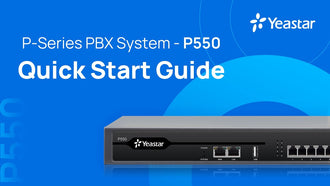

What is a call center meaning?- All in One Guide.
- 13 Jan, 2021
Millions of businesses around the world rely on a call center operation especially After the COVID-19 outbreak reduced our face to face interactions, Call Centers and Contact Centers became even more important. Also, Call Centers provide plenty of job opportunities and will continue to do so in the future.
In this practical article, we will take you through an interesting journey to learn together everything about call centers and contact centers. So are you ready?
WE WILL LEARN ABOUT :
- What is a Call Center?
- Call Centre VS Contact Center.
- Who should use a Call Center?
- How does a Call Center work?
- Inbound Call Center VS Outbound Call Center.
- Types of Call Centers.
- Call Center analytics and reporting.
- Conclusion.
1. What is a Call Center?

A call center is a department or an office to which incoming and outgoing telephone calls from both current and potential customers are directed.
These calls are handled by a team or group known as “call center agents”.
Call Centers can be existing in the company or be outsourced to another company that specializes in handling calls.
2. Call center VS Contact center. Know the difference!

Typically your call center deals with one communication channel which is Voice calls, however as you scale your business and handle queries from additional channels such as email, live chat, website and apps it turns to a contact center.
In other words, contact centers provide Omnichannel support. And call center provides one channel support (voice calls)
Despite most of the organizations now handling customers' queries over Omnichannel, 'call center" is what they name it!
So the term call center and contact center are often used interchangeably.
3. Are call centers still valuable?
Definitely YES! So many brands keep investing in call and contact centers since call centers provide a platform where the company has the opportunity to:
- Enhance its image, resolve problems and create a strong customer base.
- Email and chat bots still have nothing on the call centers. Statistics show 73% of customers using the phone for customer service more than any other channel. So you should fulfill their expectations by getting their issues handled quickly and efficiently
- In some cases call centers may be the most valuable asset for the brand because the data that a call center provides enables the business to personalize service and track each customer journey to provide the best possible experience.
4. What business type should use a call center?

Any industry that seeks to interact with customers especially via the telephone can benefit from a call center.
A call center is used by online merchants, eCommerce business, mail order organizations, polling services, charities...Etc. typically any organization that wants to:
- Offering customer support
- Carries out telemarketing
- Conduct market research
- Enhance the customer experience
5. Inbound call center VS Outbound call center.

To understand how a call center works, you need to know first what the difference is between Inbound and Outbound call centers.
- Inbound call center
It is a call center that handles exclusively calls initiated by customers – “call reception”
HOW IT WORKS:
Inbound call centers handle a large volume of calls at the same time.
An interactive voice response system "IVR" will answer calls and utilize options via touch-tone keypad selection or speech recognition technology to either address customer queries with an automated message or route the call.
Through the automated call distributor system "ACD" that deals with calls from the IVR system and routes it to the appropriate agent based on an associated database.
Agents in inbound call centers handle queries from current and potential customers related to technical support, account management, scheduling, complaints or other issues.
- Outbound call center
Outbound call center agents (usual salesmen) make calls to customers on behalf of the business or client.
For what purpose? Usually using outbound call centers for lead generation, telemarketing, customer retention, fund raising, surveying, collecting debts or confirming an appointment.
Outbound call center calls are made with an automated dialer and forward to an available agent via IVR system once a connection with a client has been made.
- Blended Call Center
To be honest, in practice call centers are a mix. Known as "call blending" it alternates inbound and outbound calls according to call volume to increase agents productivity.
Customer service agents answer and return clients calls, while sales reps must manage calls to and from leads.
Bonus
If the agent can give the customer all information they require during the call without passing it to someone else, it is known as "one and done call". And it's a sign of efficiency in a call center.
6.Call center types

Call centers can be categorized into 4 types. Some of them existed for a long time and others emerged due to technological and business development.
- In-house call center:
The company owns its call center infrastructure and hires its call center agents.
This type is suitable for large organizations that deal with a huge number of customers and consider call center precious assets Like telecommunication companies call center Vodafone is an example.
- Outsourced call center:
Your business in this type doesn't own any devices or agents but there is a third party company that handles calls on your behalf.
Suitable for: Small and medium organizations and eCommerce businesses that want to reduce their operating costs and keep their employees at minimum range.
3.Offshore call center:
In this type your company still outsourced its call center but in another country.
Suitable for business want benefits from low prices to call center services that are provided in other countries. But you should be careful while using this type because it may downgrade your reputation due to language and lack of product information.
- Virtual call centers:
Agents are geographically dispersed and become more flexible -not just in size but also in the setup- answer calls utilizing cloud call center technology.
Agents working from home or small groups in a different sized room or office providing better work, life balance and increased productivity.
7. Analyzing and reporting your call center performance:

You can measure your call center performance by using and applying a set of key performance indicators (KPIs) and metrics.
The metrics vary according to your call center function. But generally, these metrics should assess:
- Customer satisfaction: by a post-call, or follow up email survey
- First contact resolution: means how many times the customer needs to call the company to get the problem solved.
- Service level: the percentage of calls that are answered within a given time (the average between 80% of calls answered in 20 seconds)
- Agent satisfaction: as they said, take care of your employees and they will take care of your business.
- Sales value: the volume of sales that an agent makes over a certain time or per X number of contacts.
Conclusion
We have discussed together with the base of the call center and what it means and clarify some of its related terms.
But stay tuned for the next topics. We will learn what's the call center system and how to create a call center and what are the best devices and prices.
Put your comments and queries and we will answer all of it.








